 Everest Ntamakemwa was in church when the earthquake struck in Kamembe, some 300km southwest of Rwanda's capital, Kigali.
Everest Ntamakemwa was in church when the earthquake struck in Kamembe, some 300km southwest of Rwanda's capital, Kigali."I am a deacon, so I was standing at the altar," he told me.
Worshippers at Nkanka church felt the ground and the walls start to move move, he explained."Then we saw the altar shaking continuously. The church walls then started coming down."Part of the walls fell on the altar, he said."Women started panicking and ran down the aisle, colliding with each other at the doorway. "Rubble fell down on top of them."During my visit they buried the bodies of 10 of those who died on Sunday."One woman died with six of her children," he added.
Destruction
On the way to the worst hit areas on the Congolese border, we passed many houses that had been destroyed by the tremors over the weekend. Some of them had cracks in their walls while others had been completely flattened.And when we reached Kamembe itself, the destruction was even greater.I counted at least 10 houses that had collapsed. The Rwandan authorities say several hundred homes across the country have been demolished in this way. Several thousand have been made homeless.
Relief operation
Most of the injured are being treated in local hospitals, but some had to be air-lifted by army helicopters to hospitals in Kigali.Volcanologists have travelled from Rwanda to neighbouring Democratic Republic of Congo.They will study the volcanoes there to see if the quakes were related to volcanic activity.The last aftershock occurred at around midnight on Sunday. But even now life here is still not yet back to normal.People are afraid. They have been sleeping outside their houses, in case the quakes strike again.
Towards the epicentre
Leaving Kamembe we travelled for about an hour to the island of Nkombo, on Lake Kivu, near the epicentre of the earthquake. Here about 400 homes have been destroyed. Hundreds of people are homeless and sleeping on plastic sheeting.The schools have been closed down.
The aid agencies told me they are worried about the humanitarian situation becoming more desperate.They say there is an urgent need for shelter, food and clean water to avoid outbreaks of disease."I have not had anything to eat for two days," one survivor told me."I sleep outside because I no longer have a home. All my property, even my plates and saucepans are under these bricks. I sleep in a neighbour's banana plantation with my children," he said."I lost all my clothes when my house crumbled down," another told me."I'm trying to pull some of them out but I am afraid of going back inside."
http://news.bbc.co.uk/2/hi/africa/7226709.stm
As in the days of Noah....

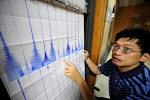

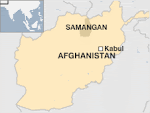







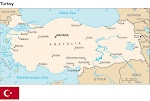
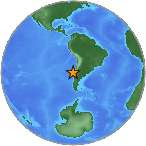




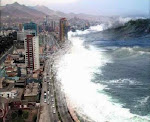

.jpg)


.bmp)
No comments:
Post a Comment